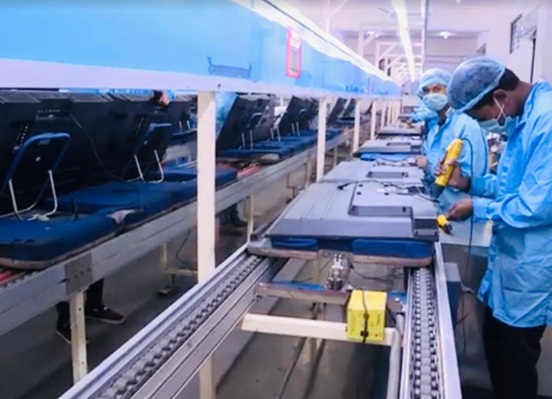New Delhi: Coming on their feet gradually from pandemic-induced economic upheaval, country’s micro, small and medium enterprises (MSMEs) have high hopes from the Union Budget 2021. They want the government to release pending incentives on account of exports, additional credit support and further easing of GST compliance.
With input costs for various items such as pharma, plastics and chemicals soaring by upto 30% over the past few months and delay in clearing pending incentives, a large section of the MSMEs are facing cash shortage.
“There is a lot of money in the banking system but manufacturers are facing severe liquidity crunch. We need more financial support. The government should come up with innovative schemes to support R&D expenses in terms of full tax exemption,” said Natubhai Patel, President of Gujarat Chamber of Commerce & Industry.
He noted that incentives under Merchandise Export from India Scheme (MEIS) which account for 2-8% of the net exports are pending since April last year. As a result MSMEs are facing massive cash crunch.
Given the low profit margins of the exporting firms, withholding the incentives means accentuating the hardships of the MSMEs.
In order to help MSMEs in the highly competitive international markets, the government had come up with MEIS under which exporters get incentives in terms of duty credit scrips. The scrips can be used by an exporter to pay their tax liabilities.
In the wake of adverse ruling against the scheme by World Trade Organization (WTO), the government has replaced the MEIS with Remission of Duties or Taxes on Export Products scheme or RoDTEP.
Patel who is into manufacturing of chemical items said that after the economic activities started following nationwide lockdown the economic revival was led by large and medium companies. The MSMEs continue to struggle because of increase in raw material prices.
“For instance, prices of polymer products which are consumed by large number of MSMEs have risen by 30-40%. This means requirement of additional working capital. We therefore hope that government will extend the guarantee-free loan scheme beyond March, 2021,” Patel said.
MSMEs have been among the worst-sufferers from economic disruptions caused by pandemic. Given the key role they play in the economy, job creation and exports, the government came up with credit support scheme and other concessions but they are considered inadequate.
Seen as backbone of the Indian economy, India’s MSME sector accounts for about 90% of its industrial units and contributes to 45% of its total industrial value addition and almost half its exports.
MSMEs were struggling even before Coronavirus hit the country. They had faced tough times during demonetisation and GST roll-out.
Prashant Patel, Managing Director of Surat-based Prashant Industries hopes Finance Minister Nirmala Sitharaman would announce measures to simplify GST return rules while presenting the Budget on Monday. Besides, he hopes government will treat MSMEs at par with other companies irrespective of they being LLPs, proprietary firms or private limited firms while giving tax concessions.
“Instead of a lot of ‘ifs’ and ‘buts’ in notifications, they should be simple and easy to comply without the help of an expert. MSMEs do not have enough resources to engage high-paid advisors for consultation on tax matters. Then, the GST rules need to be further simplified,” he said.
While remaining hopeful of getting required support, many MSMEs want more focus on quality and rewarding those making quality products.
“Government being the biggest buyer, it should reward quality producers by changing the procurement rules. Making supplies at the lowest rates should not be the lone criteria in government orders. Quality standards should be specified beforehand so that quality goods are supplied at most competitive rates. Without producing quality product India cannot compete in international markets,” said VK Aggarwal, Managing Director of Shashi Cables.

